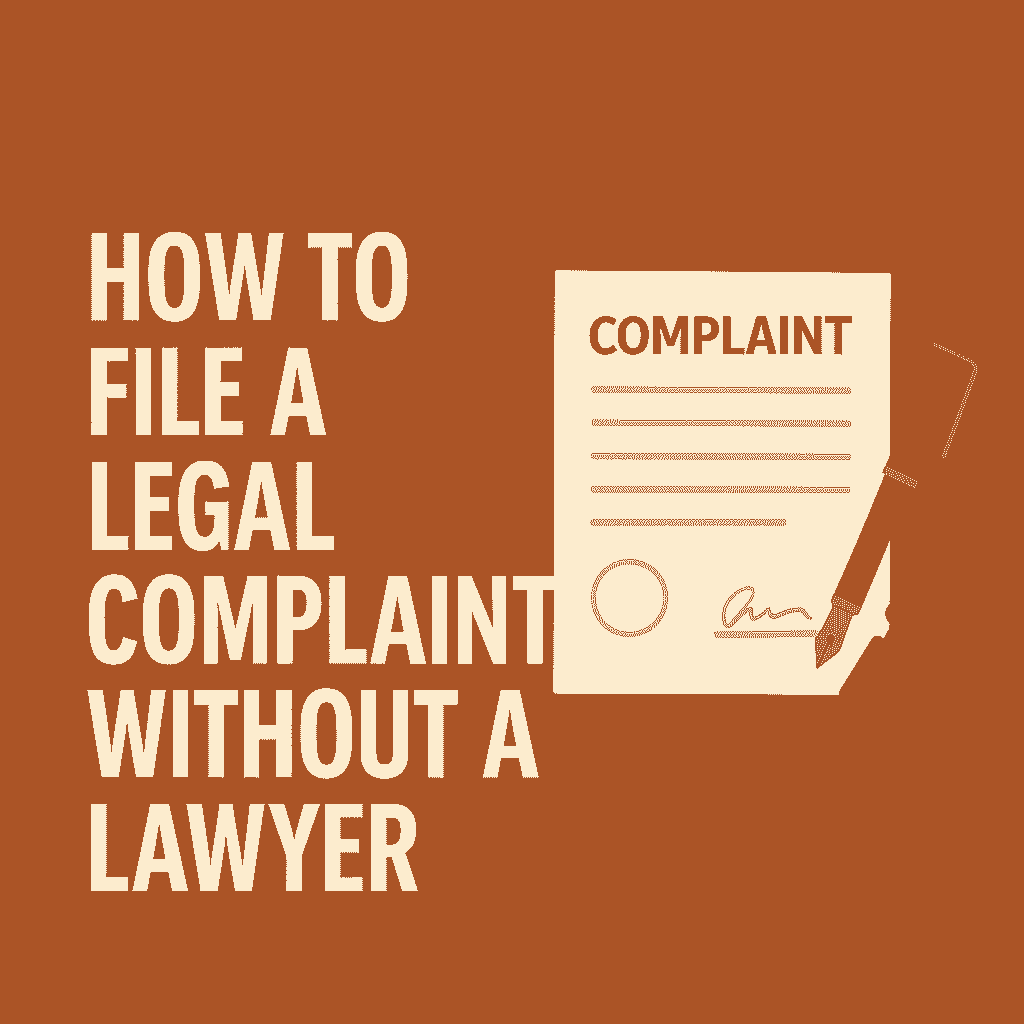In today’s complex legal environment, many individuals in Pakistan find themselves in situations where they need to take legal action—but may not have immediate access to legal representation. While seeking help from a top law firm in Pakistan is always recommended for intricate or high-stakes matters, there are certain legal complaints that individuals can file on their own.
This guide, provided by Arham Law, a trusted Pakistan law firm, outlines the step-by-step process for filing a legal complaint in Pakistan without a lawyer—empowering citizens to assert their rights effectively and legally.
Why File a Complaint Without a Lawyer?
Hiring a lawyer offers significant advantages, such as professional representation, legal strategy, and procedural knowledge. However, individuals may choose to proceed independently in cases involving:
-
Minor civil disputes (property access, unpaid loans, defamation)
-
Harassment or threats
-
Consumer rights violations
-
Labor complaints
-
Police inaction or misconduct
In these cases, the legal system in Pakistan does allow complainants to represent themselves—especially at the District and Sessions Court level.
Step-by-Step Guide to Filing a Legal Complaint Without a Lawyer
1. Identify the Nature of Your Complaint
First, clarify the category of your complaint—civil, criminal, labor, consumer, or family law. Each has a designated forum:
-
Civil disputes → Civil Courts
-
Criminal matters → Police or Magistrate’s Court
-
Family issues → Family Courts
-
Labor issues → Labor Courts
-
Consumer rights → Consumer Protection Courts
Knowing the right forum helps avoid unnecessary delays and ensures your case is heard in the appropriate jurisdiction.
2. Draft the Written Complaint (Application or Petition)
A formal complaint must be written in clear, respectful language and should include:
-
Your name, CNIC, and contact details
-
Details of the opposing party
-
Facts of the complaint (with date, time, location)
-
What relief or action you are seeking
Use formal paper (legal stamp paper if needed) and ensure the complaint is typed or neatly handwritten. You may need to attach:
-
CNIC copies
-
Any relevant evidence (contracts, photos, messages)
-
Witness details if applicable
At Arham Law, we often assist clients in reviewing such drafts for accuracy before submission—even if full legal representation is not sought.
3. Submit the Complaint to the Relevant Authority
Depending on the case type:
-
Police Station (for criminal complaints): Submit the application to the Station House Officer (SHO). If they refuse to register an FIR, you can escalate to the Superintendent of Police (SP) or directly file a petition in court under Section 22-A CrPC.
-
Civil/Family Court: Submit your plaint to the Nazir (court clerk). You will receive a case number and hearing date.
-
Consumer or Labor Court: Submit your complaint to the registrar’s office, along with proof of purchase or employment documents.
Make sure to keep a copy of your complaint and receive a stamped acknowledgment.
4. Attend the Hearings & Present Your Case
Once your complaint is accepted, you’ll be given a hearing date. Prepare your arguments, organize your evidence, and stay calm during proceedings. Speak only when asked, and address the judge with respect.
Even if you are not a lawyer, you have the right to represent yourself. However, judges may advise you to seek professional assistance if the case becomes too complex.
5. Seek Mediation or Settlement (Optional)
Some courts, especially family and civil courts, may offer or recommend alternative dispute resolution (ADR) options like mediation or conciliation. This is a great way to resolve disputes amicably and save time and resources.
6. Follow Through with Court Orders or Appeals
If the court rules in your favor, comply with all further instructions, whether it involves recovering damages, compensation, or legal enforcement. If you disagree with the outcome, you can file an appeal—but at this stage, hiring a lawyer is highly advised to navigate appellate procedures effectively.
When to Consult a Pakistan Law Firm
While self-representation can work in straightforward matters, legal complexities often arise—particularly when:
-
The other party is represented by counsel
-
You’re dealing with corporate entities or government departments
-
The stakes involve property, child custody, or criminal charges
In such cases, working with a top law firm in Pakistan like Arham Law ensures your rights are fully protected and your case is presented professionally.
Final Thoughts
Filing a legal complaint in Pakistan without a lawyer is possible, but it requires diligence, preparation, and a good understanding of court procedures. By following the steps outlined above, you can initiate the legal process confidently and assert your rights.
However, even if you choose to begin the process on your own, seeking professional advice—even for document review or procedural guidance—from a reputable Pakistan law firm can make a meaningful difference in the outcome of your case.

